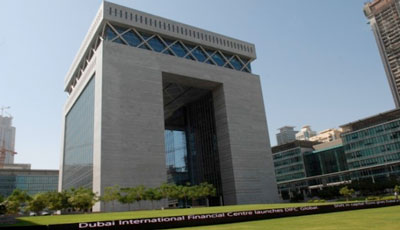The UAE’s pressing need for legislative reform

There is no doubt that, in the past 15 years, the UAE has managed to build what is, by any standards, the most developed infrastructure, the highest quality of life, the most diversified economy, and the most efficient government in the region. Some may argue that this infrastructure equals or even exceeds international standards. In fact, according to the recent World Competitiveness Report, the UAE moved forward seven levels and now ranks third in quality of infrastructure after Switzerland and Hong Kong and ahead of many developed countries.
The UAE has thus become a model to which Arab and regional states can and must look for future development. It is the place where the region’s youth can actually foresee the achievement of their dreams. The beauty of it is that it has not been done merely because of oil, as some would argue. Oil has been plentiful elsewhere in the region, sometimes coupled with other natural resources as well as skilled labour — yet no such remarkable development has occurred in those places. In some instances, no real development of any sort has occurred.
However, the UAE’s success story is not free of some drawback. One area that has attracted insufficient attention is legislative reform; what I would call the “soft infrastructure.” The lack of progress on this front is not especially surprising or unusual. During good times, there is a tendency to forget the need for such reform and, during bad times, legislative reform naturally takes a back seat to other exigent priorities.
In any event, the fact remains that the UAE badly needs to update its laws and legal system. While it enjoys the most developed infrastructure and economy in the region, the absence of up-to-date laws can only hinder the growth rate that the UAE has targeted. Its commercial law, for example, dates back to 1993 when the economy was fundamentally different from today’s. Even then it lagged behind events, as it was based on a Kuwaiti commercial law enacted 13 years earlier. Meanwhile, the companies law is in no better shape for all the successive attempts to amend it. One cannot ignore that there is still no arbitration law, no investment law, nor even a modern banking law in the UAE.
Aware of how the UAE has been handicapped, authorities followed two approaches to solve the problem. The first idea was to expand in the establishment of free zones where foreign investors can avoid the application of a few restrictive UAE legal requirements, such as the mandatory participation of national shareholding of not less than 51 percent of the capital of any company.
Free zones provided some relief, yet these provided only a limited solution that did not assure sustainable economic growth and diversification. A second, more sophisticated approach was to carve out what are called financial free zones, which enjoy full legislative independence in terms of commercial and civil laws along with a world-class regulator and judicial authority. Dubai was the first to launch the Dubai International Financial Centre, or what is commonly known as the DIFC, in 2004 and Abu Dhabi followed recently by establishing the Abu Dhabi Global Market in 2013.
While the concept of financial free zones is indeed innovative, there are inherent deficiencies. Because they’re labelled “free zones,” the ability of companies incorporated in the zones to compete regionally is impaired. But most important, in my view, the focus on these zones as oases for proper legal oversight distracts us from the urgent need to reform the core of law on the mainland. Scattered free zones, even if legally well-developed, will not provide long-term solutions when the central body of law across the country remains underdeveloped. It’s like building a five-star hospital to serve elites while avoiding the need to upgrade an otherwise shattered national healthcare system.
To be sure, full reform of all the laws may well be an impracticable goal to achieve in a single step; it can only be a long exhausting process, particularly in a federal state like the UAE where various agencies are involved in the legislative process. That said, we must begin somewhere, and the commercial laws are a promising starting point. The need for reform in this area is the most pressing even as the attendant issues are significantly less controversial.
Source: arabianbusiness – The UAE’s pressing need for legislative reform




























